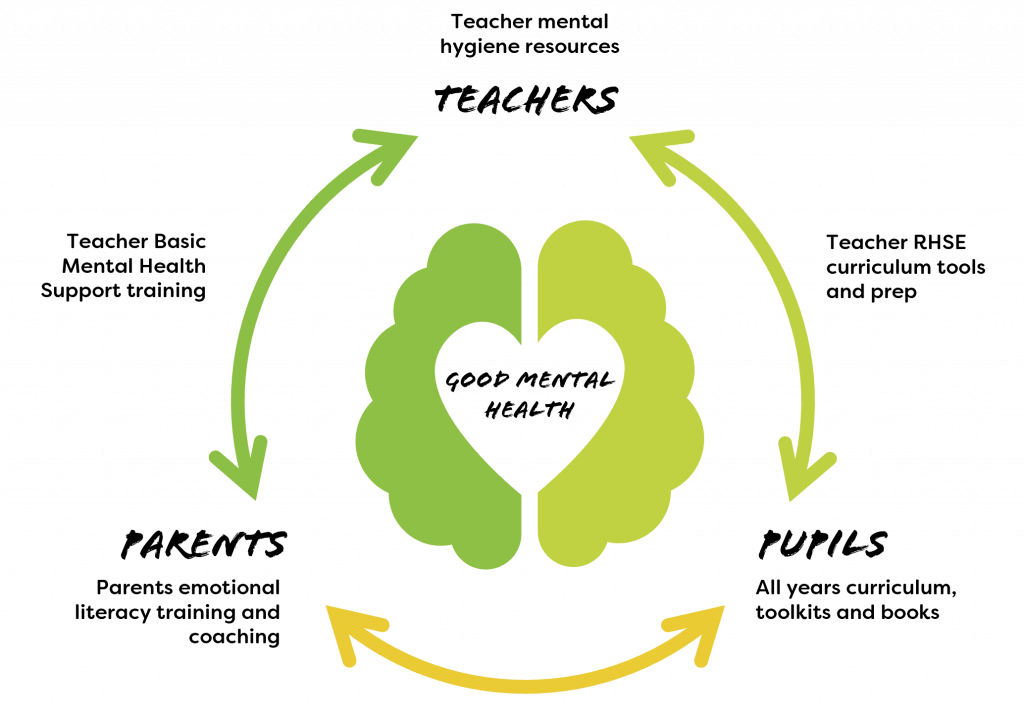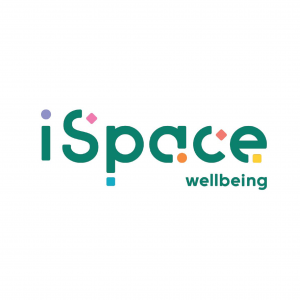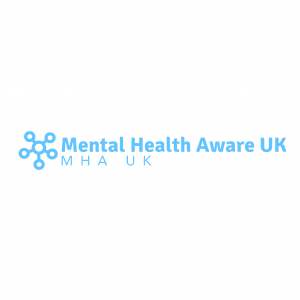We are committed to improving young people’s mental health
1 in 6 young people have a common mental health condition such as anxiety or depression. 75% of diagnosable mental health conditions are present before the age of eighteen but there is an average 10 year delay before appropriate treatment is received. Improving young people’s mental health is a vital component in improving society’s mental health in the future.
Our work in young people’s mental health so far
In 2017 we raised 103,000 signatures during our Headucation campaign for a parliamentary debate which led to compulsory mental health education in schools from the September 2020 school year. Unfortunately, there is more work to be done.
Following on from our 2017 success, we now focus our energy on improving young people’s mental health by ensuring their teachers are equipped to understand mental health and support their pupils more effectively to deal with it. At present, teachers receive no mental health training, yet – aside from parents – these are the adults that children spend most of their time with during the day.
Why Young People Desperately need help with mental health
Did you know…
- 1 in 6 school-aged children has a mental health problem?
- Over two-thirds of young people believe the pandemic will have a long-term negative effect on their mental health?
- Depression and anxiety are some of the leading causes of illness and disability among adolescents?
- Self-harm is more common among young people than any other age group?
- Suicide is the third leading cause of death in 15-19-year-olds?
Mental health is as important to a child’s safety and wellbeing as their physical health. It can impact on all aspects of their life, including their educational attainment, relationships and physical wellbeing. It can be hard for adults to recognise when a child needs support with their mental health and it can be difficult for young people to speak out about the challenges that they are facing.
It is crucial that anyone who works with children can recognise the signs that a child may be struggling with their mental health and, more importantly, that they know how to take appropriate action.
How can we improve young people’s mental health?
Despite all the laws that are there to protect and support children’s mental health we are seeing unprecedented levels of depression and anxiety in young people. And with something so difficult to police, discrimination and mental health stigma is still very much a concern.
We believe the problem with the current mental health measures is that they mainly look to support those who suffer from severe mental health conditions rather than protecting them from developing in the first place.
And due to high demand from overstretched services, children who require support are rejected or don’t receive it quickly enough – many young people with life-threatening conditions can wait more than 100 days before receiving any form of treatment via CAMHS.
We believe the key is early intervention. Children and teenagers spend much of their adolescent lives in education settings surrounded by teachers. Yet, with no mandatory or government-funded mental health training, many signs of mental health go unmissed or get mishandled by the school staff. By training teachers in the basics of mental health, they will be better equipped to spot the signs of mental health struggles in teens, support mental health problems in the classroom and signpost teens to alternative mental health resources besides the GP.
The key to preventing severe conditions that require a child to go through long-term clinical treatment is to notice the signs early on, educate children about mental health and encourage them to seek support as soon as they notice a problem (as they are already encouraged to for physical problems).
Early intervention can not only reduce the impact of mental health on teens in the long term, but by reducing the number of young people in need of intense clinical support it can enable professional services to provide fast and efficient support for those who still need it.
How can you help us improve young people’s mental health?
With Headucation we are mobilizing corporate sponsors and individuals to help us bring about a transformation in the mental health of the next generation: working with local educational authorities and partner organisations we are bringing a whole-school approach to mental health, helping schools to develop a culture shift towards sustainable better mental health and wellbeing – free of charge to the schools.
Right now, schools have to pay for mental health training themselves since it isn’t considered “mandatory” by the government.

We are calling for support to enable us to accomplish our mission: financial support so that we can provided fully-funded training to schools across the UK; support in making the cause known and helping us create public awareness; and administrative support by getting involved with the training, co-ordination and follow-up with schools in your community.
Donations to Headucation can be made by visiting shawmind.org/donate
Is your school looking for fully-funded mental health resources? Get in touch





